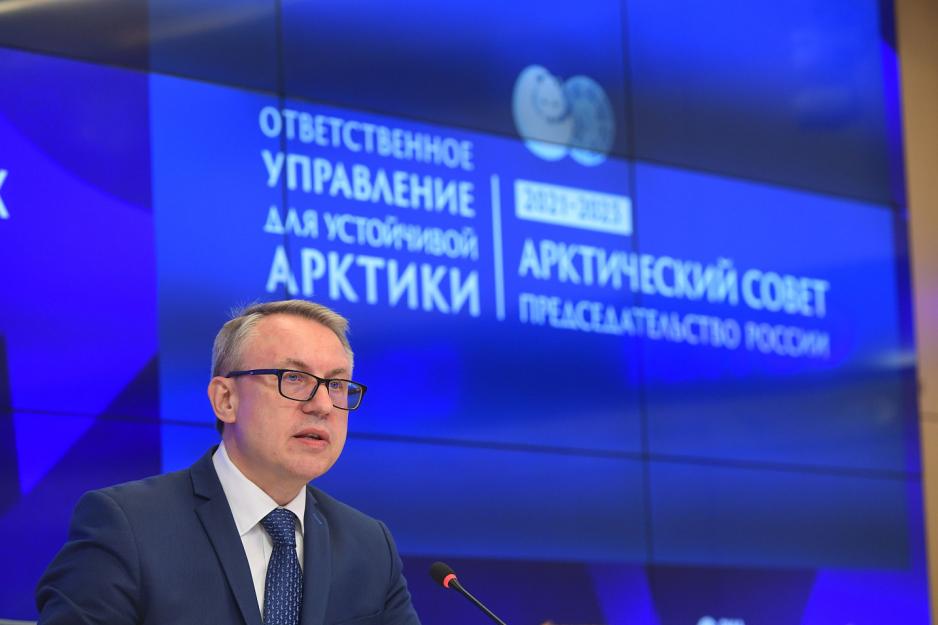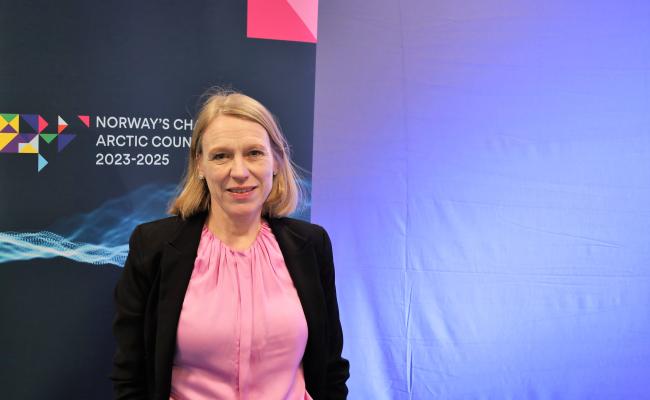Russia's Top Arctic Diplomat: Long-Term Cooperation in the Arctic Requires Conditions Now Lost

Nicolay Korchunov, Russia's Arctic Ambassador and Chair of the Senior Arctic Officials, Arctic Council. (Photo: Roscongress)
Even if the Arctic Council’s activities are resumed, the development of long-term cooperation with the Western Arctic states is hard to imagine, says Nikolay Korchunov, Russia's Arctic Ambassador. He points to a lack of trust.
"How can we, in the future, even if the Arctic Council resumes its work in certain areas, build cooperation on a long-term basis? Well, we obviously cannot because the most important element is lost – the trust is lost," says Nikolay Korchunov, Ambassador at Large for Arctic Cooperation at the MFA of Russia, referring to the Western Arctic countries.
Korchunov made this statement on Thursday in a meeting organized by the Russian Project Office for Arctic Development. That is reported by the Russian news agency TASS.
He is also reported to have said that the interaction between Russia and the West is preserved on a working level and a personal level, but that such contact is not formal, according to TASS.
Norway is scheduled to take over the chairship of the Arctic Council from Russia in a virtual meeting on the 11th of May, which the Russian news agency also mentions. Furthermore, it is pointed out that the Western Arctic countries decided to resume some of the council's work without Russian participation in June of 2022.
Constructive in regard to chairship change
"We still consider the Arctic Council an important forum for cooperation in the Arctic. At the same time, we witness a weakening of the role of Arctic multilateral formats of cooperation, including the Arctic Council. As for the procedures related to the transfer of chairship, we view them as a part of the regular consensus-based process of the Arctic Council which is going on," wrote Kurchunov to High North News in late March.
His statement was interpreted as a sign that the chairship transfer could go over well by Svein Vigeland Rottem, Senior Researcher at the Fridtjof Nansen Institute.
The latest input from the Norwegian Arctic diplomacy also suggests this:
"We generally perceive that Russia is constructive when it comes to the practical transfer of the chairship of the Arctic Council. Our cooperation is fine," said Morten Høglund, the Norwegian Senior Arctic Official, to HNN recently.
Cooperation with non-Arctic states
Earlier in April, Korchunov stated that "confrontation between the Arctic states has been transferred to multilateral structures, such as the Arctic Council" and that "this has not been of Russia's choosing." This was also reported by TASS.
"All this leads to the weakening of multilateral institutions and formats for interaction in the Arctic, the erosion of collective approaches to solving regional problems, and a growing atmosphere of distrust and confrontation in the region," he said.
The Russian top Arctic diplomat also referred to Russia's new foreign policy concept, which was approved by President Putin on the 31st of March, and stated the following:
"Unlike the strategic documents of other Arctic and non-Arctic countries, ours is not directed towards confrontation or deterrence of other nations in the Arctic."
In the new foreign policy concept, it appears that Russia's priorities in the Arctic will include the following:
- "Peaceful resolution of international issues connected to the Arctic, based on the Arctic states' special responsibility for the sustainable development of the region and the UN Convention on the Law of the Sea."
- "Neutralizing the course of unfriendly states toward the militarization of the region and limiting Russia's ability to exercise its sovereign rights in its Arctic zone."
- "Establishing mutual beneficial cooperation with non-Arctic states which lead a constructive policy toward Russia and are interested in international activity in the Arctic, including the development of infrastructure for the Northern Sea Route."
As previously covered by HNN, Russia has reported interest in Arctic cooperation from the BRICS countries (article in Norwegian only) and expressed a desire to develop an international research station on Svalbard with these countries.
Also read
This article was originally published in Norwegian and has been translated by Birgitte Annie Molid Martinussen.





